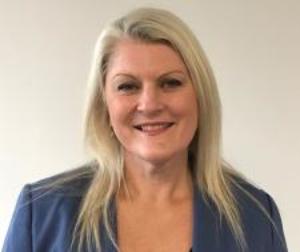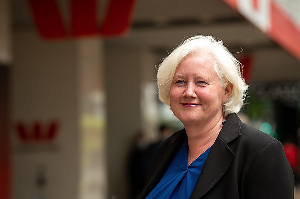
NZFSG, Mortgage Express and The Mortgage Supply Company all made submissions on the CWG proposals with Mortgage Express taking a different line to the other two.
NZFSG does not believe the new code should require Financial Advice Providers (FAPs) to document and maintain “ethical processes” and make them publicly available. The group believes ethical processes should be standardised and incorporated within the Code of Professional Conduct to “ensure consistency and transparency”.
In contrast, Mortgage Express Compliance and Training Manager Leigh Hodgetts (pictured) agreed with proposals that FAPs should be required to have a publicly available corporate code of ethics.
The Mortgage Supply Company’s Jenny Campbell said she did not object to FAPs publicly documenting ethical processes as long as it was not a “cumbersome process”. She said such a move would be “somewhat overkill” for a one-man band adviser.
NZFSG said it agreed “in principle” with proposals FAPs should be able to demonstrate they meet standards of ethical behaviour as if they provided the whole advice process directly themselves. Yet it warned it may be impossible for them to detect some “unethical processes” at adviser level, such as employment issues, sexual harassment, or advisers telling clients to disclose false information.
Meanwhile, advisers were split on whether there should be a requirement for explicit sign-off on the soundness of financial advice provided directly by an FAP.
The Mortgage Supply Company said sign-off proposals were a “major concern” that would add “an enormous burden on advisers and groups”: “Mortgage advice given by an adviser is in practice already signed off by a lender, and in most cases, by the client’s solicitor. This is more than enough oversight. Also -- for a one-man-band adviser -- who would even give the sign-off? Themselves?
Campbell added: “We would also be very concerned that if advice is signed off by another party (say a Head Group for example), then the adviser may feel that the ultimate responsibility for that advice does not sit with them, and if advisers are not personally accountable for that advice, we will see poorer client outcomes.”
Mortgage Express’s Hodgetts, on the other hand, agreed with the proposal that there should be explicit sign-off on financial advice given directly by an FAP.
The issue of experience was also raised in advisers’ submissions. The CWG had proposed a level five minimum qualification for those dealing in product advice, and at least a degree standard for those offering financial planning.
NZFSG raised concerns about the combined expertise approach to “competence, knowledge, and skills” in the CWG proposal. The group believes a combined expertise approach would burden groups and put the onus on them to prove members’ level 5 qualifications. NZFSG prefers an industry standard qualification, such as the NZ Certificate in Financial Services Level 5, as the minimum standard requirement for financial advisers.
Under the new regime, AFA, RFA, and QFE designations will be replaced. Advisers hold differing views on how to recognise the experience of established and experienced RFAs.
NZFSG said there should be an industry standard qualification, such as the NZ Certificate in Financial Services Core and Specialist Strand, without the need to do the advice strand.
The Mortgage Supply Company said, “advisers should be able to complete a backfill type quiz or test to check on basic competence”. Mortgage Supply said any moves to make experienced advisers go back and complete their speciality strand would be “completely revisionary”.
Meanwhile, Mortgage Express said an RFA’s experience should be judged on products offered, whether they are part of a bigger group, their compliance history, and education levels.





Comments
No comments yet.
Sign In to add your comment